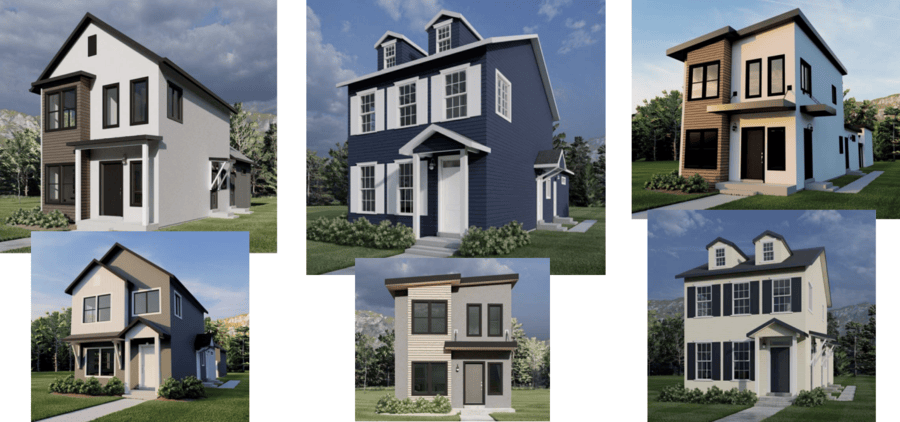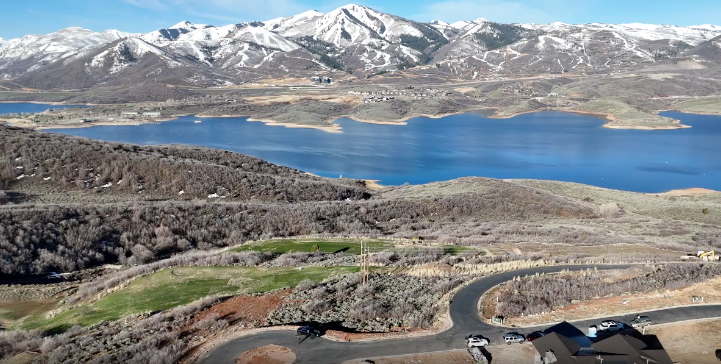

Sandy, UT - May 9, 2025
When Utah was again (for the third time) named this week as the #1 state in the nation by U.S. News & World Report, the headlines celebrated economic opportunity, family life, and rapid growth. But behind the accolades lies an urgent issue: most Utahns can no longer afford to buy a home.
Brody Lambert, co-founder and CEO of Elevation Construction knows this problem better than most. A former public-sector building inspector turned homebuilder, Lambert has sat on both sides of the zoning table. And now, he’s doing something few others are willing to: sacrificing margins to restore access to the American Dream.

With over 25 years of experience across fabrication, framing, infrastructure, and mechanical systems, Lambert has managed millions of dollars in construction projects. He’s a graduate of the Jon M. Huntsman School of Business at Utah State University, holds multiple state licenses, and carries 16 certifications from the International Code Council (ICC). He’s served on civil and state chapter boards, taught code compliance, and lectured at both BYU and UVU.
Lambert sat down with TechBuzz to share his insights about Utah's housing affordability issue and how his company is addressing it.
"We’re not trying to get rich in 12 months. We’re playing the long game," said Lambert. “We’re building homes that people can actually afford—and grow into."
The Root Problem: Dirt Isn’t Cheap
According to Lambert, the affordability crisis begins with land. Utah’s geography limits development to a handful of valleys squeezed between mountains and lakes. That means available land is scarce—and expensive.
"You’re not building on endless Kansas plains here," Lambert explained. "And sellers know they can get top dollar from out-of-state buyers with cash. That alone prices out the majority of Utahns."
Compounding the problem: zoning restrictions that mandate large frontages and lot sizes. These rules make it illegal to build homes like those found in Sugar House or The Avenues—homes that are still wildly popular but no longer permitted under modern zoning codes.
The Elevation Approach: Tech-Enabled, Time-Saving Construction
Rather than wait for top-down reform, Elevation Construction is partnering with innovators to reimagine how homes are built. Their testbed? A small development in Ephraim, Utah.
At the heart of their approach is modular construction. Wall panels from Los Altos, California-based Livio arrive prefabricated with plumbing, wiring, and sheathing built in. These cold-formed steel structures are fire-resistant and energy-efficient.
"We put one up in 12.5 hours," said Lambert. "From foundation to roof, you’re walking through the house the next morning."
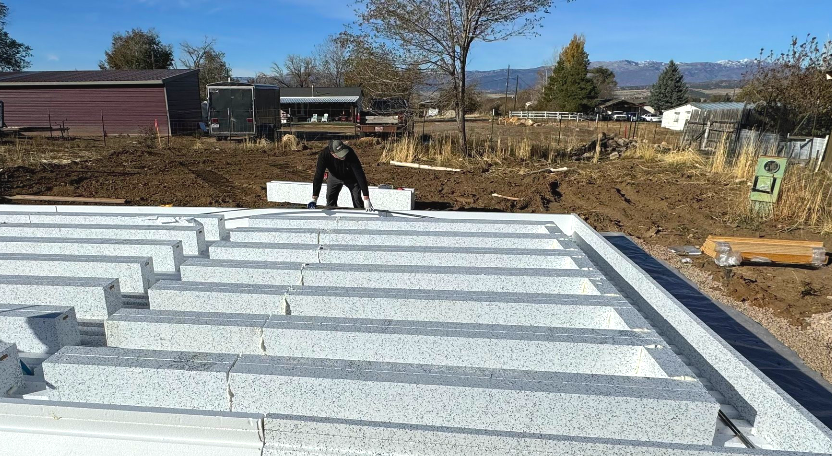
Supporting the structure is an innovative foundation system from Provo, Utah-based SimplyBilt. Instead of digging four feet down, this foam-insulated system requires just 12 inches of excavation. The result: faster builds, lower labor costs, and better energy performance.
For interior walls, Elevation uses HydroBlok, a Draper, Utah-based gypsum board alternative that’s mold-resistant, lightweight, and safer for laborers. "Another key material driving Elevaton’s faster and safer builds is HydroBlok, a revolutionary building panel for interior and exterior use that offers waterproofing, mold-proofing, and a Class A fire rating. This not only enhances the safety of the homes but also provides a safer material for installers on the job site," said Lambert.
Together, these technologies cut the average build time from 100 days to 45 and reduce construction waste.
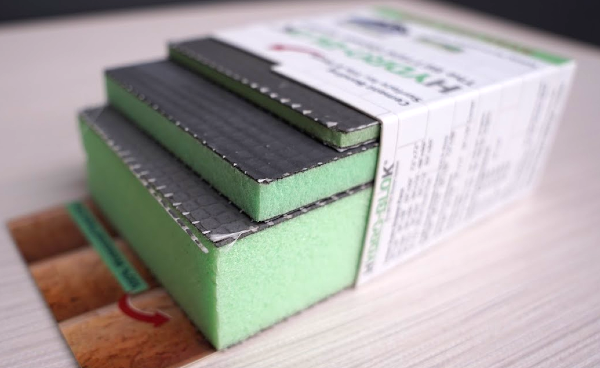
See recent TechBuzz coverage of HydroBlok.
The Flex Home: Designed to Grow With You
Elevation’s flagship product is a 1,250 sq. ft., 3-bed, 1.5-bath single-family home priced at just $299,000. The secret? It’s expandable.
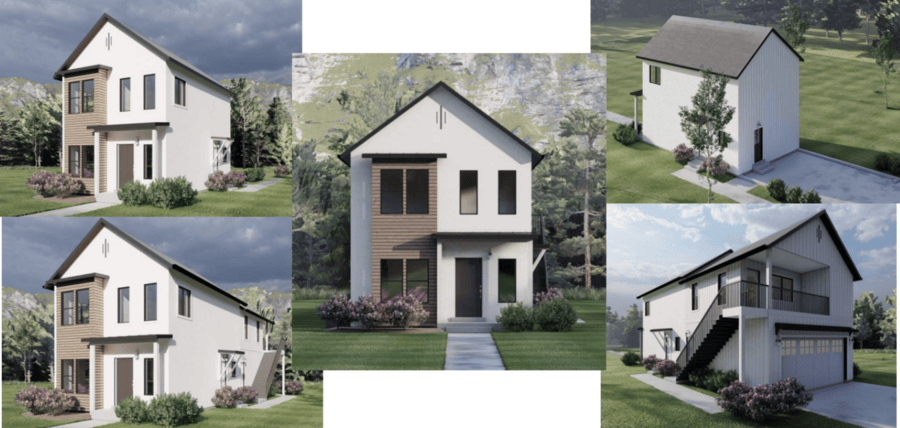
"We build the foundation up front to allow for additions—a garage, a master suite, an ADU," Lambert explained. "As owners build equity or get a better job, they can grow the home."
The floor plan is engineered to accommodate rental units, and new lending policies allow buyers to count ADU rental income toward their mortgage qualification—making these homes accessible to households earning $70–120K per year.
A Hard Sell in a High-Margin Industry
Not everyone’s on board. Lambert says multiple big-name builders walked away when they saw Elevation’s pricing model.
"We’re leaving $30 to $40 a square foot of equity on the table—for the buyer," said Lambert. "The traditional homebuilding model doesn’t support that."
Instead, Elevation is assembling a coalition of like-minded partners: landowners willing to defer lot payments, builders willing to reduce margin, and cities willing to approve smaller lots. The city of Ephraim was the first to say yes.
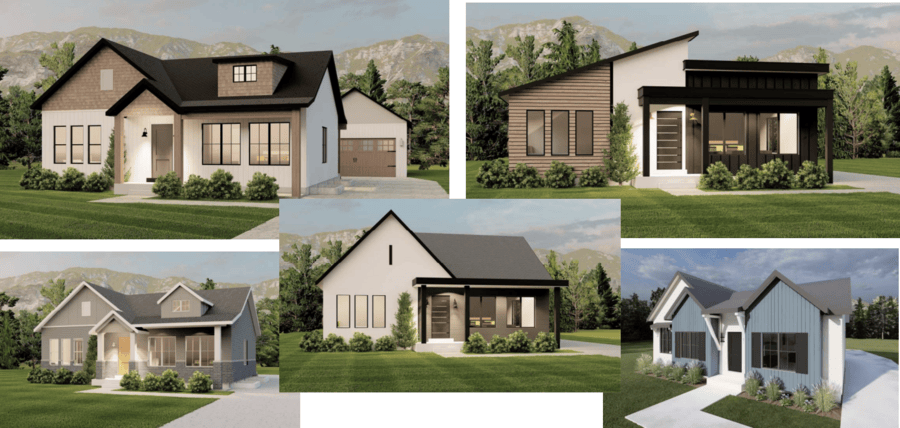
What’s Next
With additional projects in Grantsville, Nephi, Helper, and Hurricane, Elevation is scaling fast. They're also in conversation with state officials about using Trust Lands to expand affordable developments.
The Elevation model offers something radical: a path to ownership without sacrificing quality or livability. It challenges the notion that affordability means compromise.
Lambert is searching for like minded people to join the affordable housing quest. It could be a developer, a land owner, or investors that are wanting to make a real impact on Utah's housing affordability challenge.
Lambert sums it up best: “You don’t fix this problem doing what everyone else is doing. You’ve got to be willing to do something different—and leave a little on the table for someone else.”
For more information about Elevation Construction, click here.
